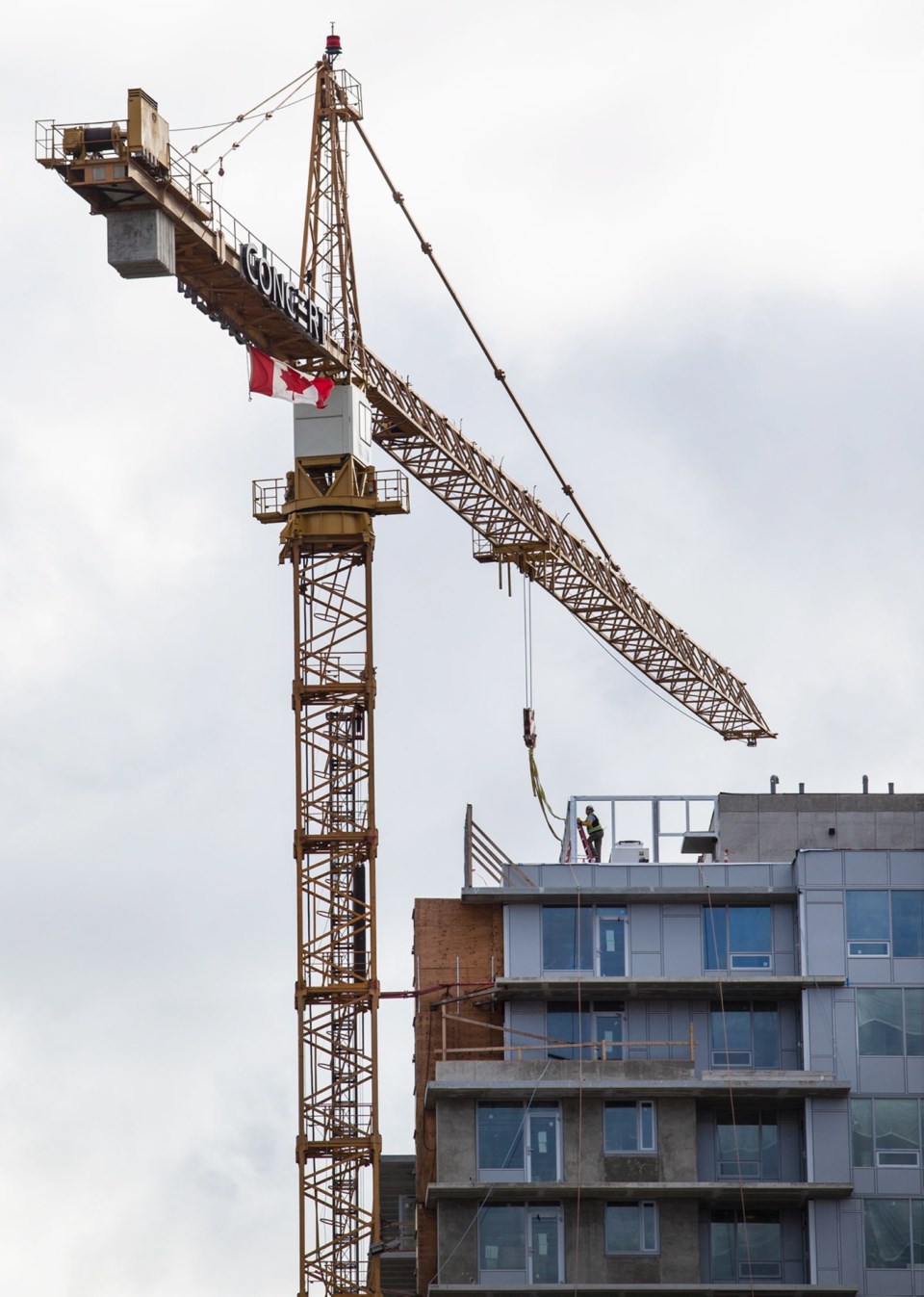Construction has been declared an essential service in B.C., but industry says many tasks simply don’t allow for social distancing
The province’s construction has been declared an essential service by the B.C. government, but that alone will not make it easier for projects to go ahead in such a challenging time, says an industry spokesman.
“There’s still a lot of clarity needed to define how we do this work on site,” Rory Kulmala, chief executive of the Vancouver Island Construction Association, said Thursday.
“It’s complicated. We are finding that even though it is allowed, a lot of tasks are challenging to perform on a construction site and maintain social distancing.”
Companies want workers to be safe and healthy and to adhere to directives of the provincial health officer, he said.
It’s great to say that construction is an essential service, he said. “But there’s also a practical element of what it takes to do construction.”
Construction requires workers to move around a site and often a lot of the work requires a crew, Kulmala said.
Kulmala recommends the province listen to the industry to try and work out hurdles.
A few construction companies have shut down for now. “We are getting word daily that contractors are seriously looking at what their operations are and weighing it against their ability to do that work efficiently and safely. Each contractor needs to look at that and define that,” he said.
“Public owners of projects need to understand if we can’t do this safely, it shouldn’t be done. That’s the underlying message.”
The sector is busy trying to develop policies and procedures, but it is challenging, he said.
“It’s not business at usual. If and as construction continues, there have to be defined protocols that are realistic and can help achieve the goals of construction.”
Construction requires workers to move around a site and often a lot of the work requires a crew, Kulmala said.
The situation affects productivity and individuals are worried and apprehensive, he said.
The essential-services announcement covers construction companies, skilled trades workers and professionals, construction and light industrial machinery and equipment rental.
Kulmala anticipates some level of slow down ahead.
“I just think it is a reality of companies and individuals making those independent decisions not to go to work and that will ultimately affect projects.”
Major construction projects are largely continuing so far locally. Greater Victoria residents see work continuing on the region’s new $775-million sewage treatment project, which is partly completed.
Condominium buildings, single-family construction, school improvements, and road works are among projects out of the ground. B.C. needs infrastructure such as roads and bridges. We need to make sure our built environment stays in good shape, Kulmala said.
“We may slow down as we try to figure this out, but ultimately, the work is not going to go away.”
Construction is one of the mainstays of B.C.’s economy, accounting for about 225,500 workers in 2017, according to the B.C. Construction Association.
The virus struck as B.C. was enjoying a healthy construction environment, with a shortage of labour its biggest challenge.
B.C.’s major projects inventory published in the third quarter of 2019 shows a total of 981 major projects — defined by having a cost of $15 million or more, or $20 million or higher in the Lower Mainland — with a total capital cost of $352.95 billion.
Of the total projects, 240 were to receive public funding from different levels of government of $43.63 billion.



